Discover Neurodiversity Podcast
Neurodiversity Podcast

Neurodiversity Podcast
Author: Emily Kircher-Morris
Subscribed: 1,449Played: 41,246Subscribe
Share
© 2022 Neurodiversity Alliance
Description
The Neurodiversity Podcast talks with leaders in the fields of psychology, education, and beyond, about positively impacting neurodivergent people. Our goal is to reframe differences that were once considered disabilities or disorders, promote awareness of this unique population, and improve the lives of neurodivergent and high-ability people.
298 Episodes
Reverse
Many brilliant young people experience the dichotomy of disability layered on top of their intelligence. It's called twice-exceptionality, or 2e for short. What are the common misconceptions about twice-exceptional individuals? How do traditional models fall short when identifying the learning disabilities of our brightest kids? And why is early recognition so pivotal? Emily talks with Dr. Danika Maddocks, a psychologist, parent coach, and founder of the Gifted Learning Lab, about the intricacies of twice-exceptionality, in childhood and beyond. This is part of our end-of-year recap, and one of our most downloaded episodes. For information about the variety of courses for teachers, parents, and mental health professionals through the Neurodiversity University, check the info page on our website. Dr. Danika Maddocks is a psychologist, parent coach, and owner of The Gifted Learning Lab. She has supported gifted and twice-exceptional kids and their families for over 15 years as a teacher, therapist, school consultant, assessment provider, and coach. She has also published award-winning research on giftedness and twice-exceptionality. Much of her work is informed by her personal experiences growing up gifted and her experience raising a young gifted kid. Here's a link to the free course about power struggles from Danika Maddocks. BACKGROUND READING Free email mini course, Reduce Power Struggles with Your Gifted/2e Kid, Facebook, Instagram If you'd like members of your organization, school district, or company to know more about the subjects discussed on our podcast, Emily Kircher-Morris provides keynote addresses, workshops, and training sessions worldwide, in-person or virtually. You can choose from a list of established presentations, or work with Emily to develop a custom talk to fit your unique situation. To learn more, visit our website. The Neurodiversity Podcast is on Facebook, Instagram, BlueSky, and you're invited to join our Facebook Group.
As we wrap up 2025, we are featuring some of our most important conversations, including this conversation about IQ, intelligence, and intelligence assessment. Emily Kircher-Morris welcomes Dr. Jack Naglieri, an emeritus professor at George Mason University and senior research scientist at the Devereux Center for Resilient Children. Dr. Naglieri is renowned for his work in intelligence testing and the development of the Naglieri Nonverbal Ability Test. In this sprawling conversation, Emily and Jack talk about his insights on the evolution and misconceptions surrounding intelligence assessment. They discuss the history of intelligence testing, and the limitations and biases inherent in traditional methods. Dr. Naglieri describes the experiences that led him to question the validity of verbal-based intelligence tests, and ultimately inspired his development of nonverbal assessment tools. They discuss the PASS theory of intelligence, and how it forms the foundation of the Cognitive Assessment System (CAS), a tool designed to measure these processes and offer a nuanced profile of an individual's cognitive strengths and weaknesses. You can download a free copy of the PASS Theory of Intelligence and the CAS2. Dr. Jack A. Naglieri, Ph.D., is Emeritus Professor at George Mason University and Senior Research Scientist at the Devereux Center for Resilient Children. His main interest is the development of psychological and educational tests and the implications these approaches have for accurate and equitable assessment. He has published about 25 books, 50 tests and rating scales, and approximately 300 research papers. Jack is the author of tests used for identification of gifted students, including the Naglieri Nonverbal Ability Test. He partnered with Dina Brulles and Kim Lansdowne to coauthor the Naglieri Tests of General Ability Verbal, Quantitative and Nonverbal, and the book, Understanding and Using the Naglieri General Ability Tests: A Call to Equity in Gifted Education (Brulles, Lansdowne & Naglieri, 2022). Dr. Naglieri has received many awards for his extensive research program that includes scholarly research, books, and psychological tests with an emphasis on uniting sound theory with equitable scientific practice. BACKGROUND READING PASS Theory of Intelligence and the CAS2, Jack's website, The Naglieri General Ability Tests If you'd like members of your organization, school district, or company to know more about the subjects discussed on our podcast, Emily Kircher-Morris provides keynote addresses, workshops, and training sessions worldwide, in-person or virtually. You can choose from a list of established presentations, or work with Emily to develop a custom talk to fit your unique situation. To learn more, visit our website. The Neurodiversity Podcast is on Facebook, Instagram, BlueSky, and you're invited to join our Facebook Group.
Emily Kircher-Morris and Dr. William Dodson have a conversation about the complexities of ADHD, in which they discuss emotional dysregulation, Rejection Sensitivity Dysphoria (RSD), and social anxiety. They talk about how RSD manifests in ADHDers, and how we can distinguish it from social anxiety. They also explore the impact of childhood experiences, the vital role of relationships, and the need for updated diagnostic criteria. This conversation was taken from a two-part series earlier in 2025. TAKEAWAYS Emotional dysregulation is often overlooked in ADHD diagnoses. RSD is a specific condition affecting many with ADHD; the pain can be both emotional and physical, leading to significant life impairments. Social anxiety is anticipatory, while rejection sensitivity is reactive; they can coexist but are distinct. Childhood experiences can exacerbate RSD but are not the sole cause. Medication, alongside sleep, nutrition, structure, and routine, plays a vital role in emotional regulation. Mood disorders can manifest independently of external events, and a significant percentage of individuals with ADHD have coexisting psychiatric diagnoses. Understanding RSD is essential for clinicians, and psychoeducation is key to self-advocacy. Here's the research project Emily mentions in her closing thoughts. Dr. Bill Dodson is a board-certified adult psychiatrist who has specialized in adults with Attention Deficit/Hyperactivity Disorder for the last 27 years. In recognition of his clinical contributions to the field of ADHD he was named a Life Fellow of the APA in 2012. He was the 2006 recipient of the national Maxwell J. Schleifer Award for Distinguished Service to Persons with Disabilities. His contributions to the field of ADHD include: The only currently available methodology for the fine-tuning of ADHD medications. The concept of Rejection Sensitivity Dysphoria and its treatment with medications. The first non-behavioral theory of what ADHD is and how it can be treated successfully with an emphasis on what goes right rather than what goes wrong. BACKGROUND READING Bill Dodson's website, Dr Dodson's contributions to ADDitude magazine
Emily Kircher-Morris is joined by Tim Villegas, the Director of Communications at the Maryland Coalition for Inclusive Education (MCIE) and the founder and host of the Think Inclusive Podcast, to discuss the concept of inclusion in education. The idea is to create inclusive environments for all students, and Tim shares his personal journey toward that goal, and insights on how to create such an environment. They talk about the importance of community, equity, and meaningful contributions in schools, as well as the challenges faced in inclusive classrooms. TAKEAWAYS Inclusion is a powerful word that means different things to different people. School should be a place where everyone belongs, regardless of their needs. Being fair means providing everyone with what they need, not just the same thing. Community plays a crucial role in fostering inclusion in schools. Inclusion is not just about placing students in general education settings; it's about creating supportive environments. Schools should aim to be more like real life, accommodating all learners. For information about the variety of courses for teachers, parents, and mental health professionals through the Neurodiversity University, check the info page on our website. Tim Villegas is the Director of Communications at the Maryland Coalition for Inclusive Education (MCIE) and the founder and host of the Think Inclusive Podcast, a long-running show dedicated to building bridges between families, educators, and advocates in the disability and inclusion space. With a background as a special education teacher and instructional coach, Tim brings over a decade of classroom experience to his work in advancing equity and inclusive practices in schools. Through his leadership at MCIE and his widely respected podcast, Tim has become a national voice for inclusive education—amplifying the stories, research, and strategies that help create learning environments where all students belong. His work focuses on shifting mindsets, promoting systemic change, and centering the lived experiences of students with disabilities and their families. BACKGROUND READING Tim's links and info If you'd like members of your organization, school district, or company to know more about the subjects discussed on our podcast, Emily Kircher-Morris provides keynote addresses, workshops, and training sessions worldwide, in-person or virtually. You can choose from a list of established presentations, or work with Emily to develop a custom talk to fit your unique situation. To learn more, visit our website. The Neurodiversity Podcast is on Facebook, Instagram, BlueSky, and you're invited to join our Facebook Group.
Today, Emily Kircher-Morris talks with Carla Ciccone, a Toronto-based writer and author of the book Nowhere Girl, about her experiences with ADHD, identity, and motherhood. Carla talks about dealing with her late diagnosis of ADHD, and the overall impact of societal expectations on women. They talk about the difficulties of navigating life with undiagnosed ADHD, how it increases the challenges of parenting, and the importance of self-awareness and therapy in managing ADHD symptoms. TAKEAWAYS When you realize you've had ADHD all along, allow yourself grief and grace. Therapy can be a critical tool for understanding and managing ADHD as an adult. Motherhood can look completely different through the lens of ADHD. For information about the variety of courses for teachers, parents, and mental health professionals through the Neurodiversity University, check the info page on our website. Carla Ciccone is a Toronto-based writer whose work spans memoir, cultural commentary, and reported nonfiction. She is the author of Nowhere Girl, a powerful debut that blends personal narrative with investigative reporting to explore her experience of living with undiagnosed ADHD. Through sharp insight and humor, Carla sheds light on the challenges of late diagnosis and the complexities of navigating neurodivergence in a world that often overlooks it. In addition to her book, Carla's writing has appeared in a range of publications, where she explores topics related to identity, mental health, and gender. With Nowhere Girl, she offers a resonant, deeply personal account that has sparked conversations about how ADHD—especially in women—can remain hidden for years. BACKGROUND READING Carla on Instagram, Carla's website, Nowhere Girl: Random House, Amazon If you'd like members of your organization, school district, or company to know more about the subjects discussed on our podcast, Emily Kircher-Morris provides keynote addresses, workshops, and training sessions worldwide, in-person or virtually. You can choose from a list of established presentations, or work with Emily to develop a custom talk to fit your unique situation. To learn more, visit our website. The Neurodiversity Podcast is on Facebook, Instagram, BlueSky, and you're invited to join our Facebook Group.
Cookie-cutter curriculum can be Kryptonite to a gifted kid, and can often spark a decline into a place where underachievement becomes the norm. Dr. Jim Delisle helps us probe the world of underachievement, and suggests ways to help people of various underachiever profiles break their chains. Our hearts are heavy with Jim's recent passing. Jim Delisle was a giant in the field of giftedness and neurodiversity, and one of its fiercest advocates. He was a friend, an important collaborator, and his contributions left an indelible mark on our podcast and the lives of our team. More than that, he literally changed the world for countless neurodivergent people. Our thoughts are with Jim's family - his wife, Deb, son Matthew and daughter-in-law Jennifer, and grandson, Wyatt. Thank you, Jim, for being such an important part of our story. James Delisle, PhD, was a professor of education for 25 years at Kent State University (Ohio), where he was selected by faculty and students as a Distinguished Professor, the University's most prestigious teaching award. Jim worked on behalf of gifted children and teens for nearly four decades. He was the author of hundreds of articles and 17 books that have been published in multiple languages, and consulted with schools worldwide in an effort to increase awareness of the needs of gifted children and adults. Jim also worked part time with highly gifted 9th and 10th graders at the Scholars' Academy in Conway, South Carolina.
Emily Kircher-Morris welcomes Sumit and Viraj Dhanda, a father-son duo who are working to update and rethink norms around communication, intelligence, and inclusion. Viraj is a nonspeaking autistic student who was diagnosed with autism and apraxia as a young child. Viraj and his father, Sumit, talk about their journey navigating the challenges and misconceptions surrounding non-verbal communication, the impact of apraxia, and the importance of presuming competence. Viraj shares his personal experiences through a communication tool, and tells the story of when he and his father discovered his unique condition. TAKEAWAYS Many non-speakers have apraxia of speech. Potential can be missed when you fail to presume competence in non-speaking people. Typing can be a transformative communication tool for non-speakers. Misconceptions about non-verbal communication can be damaging. Advocacy and persistence can lead to breakthroughs in education. Parents should explore all communication options for their children. Non-speaking people can and do have rich, complex thoughts. Education systems should rethink expectations for non-speakers. Emerging technologies offer hope for non-speaking people. Viraj and Sumit Dhanda are a father-son duo reshaping the conversation around communication, intelligence, and inclusion. Viraj, a nonspeaking autistic student admitted to MIT's Class of 2029, was diagnosed with autism and apraxia in early childhood. Through typing, he broke through profound communication barriers and revealed extraordinary strengths in mathematics, writing, and critical thinking. His poetry and essays offer rare insight into the inner world of nonspeaking autistics and have been featured by The Boston Globe, CBS Evening News, and NPR's Here & Now. Sumit, a finance professional and former executive at Bank of America Merrill Lynch, Citadel Securities, and Evercore ISI, now dedicates much of his time to advocacy and storytelling alongside his son. With a PhD in Electrical Engineering from Stanford and graduate degrees from Dartmouth and BITS Pilani, Sumit brings a unique lens to the conversation. Together, they are co-authoring a memoir that weaves their two perspectives into one powerful narrative—challenging assumptions and expanding what we understand about neurodiversity and human potential. BACKGROUND READING Twitter/X, Instagram, Facebook, LinkedIn If you'd like members of your organization, school district, or company to know more about the subjects discussed on our podcast, Emily Kircher-Morris provides keynote addresses, workshops, and training sessions worldwide, in-person or virtually. You can choose from a list of established presentations, or work with Emily to develop a custom talk to fit your unique situation. To learn more, visit our website. The Neurodiversity Podcast is on Facebook, Instagram, BlueSky, and you're invited to join our Facebook Group.
Emily Kircher-Morris welcomes filmmaker Nicola Rose, to talk about her film 'Magnetosphere,' a movie about the world of synesthesia. Nicola shares her insights and challenges of portraying neurodivergence in cinema, the difficulty and complexity of independent filmmaking, and the personal journey of understanding her own ADHD diagnosis. They talk about the creative process, the importance of authentic representation, and the universal themes of growing up and self-discovery. TAKEAWAYS Synesthesia is a perceptual phenomenon where senses are intertwined, such as seeing sounds or tasting shapes. Nicola Rose's film 'Magnetosphere' explores synesthesia through a coming-of-age story set in the 1990s. Independent filmmaking presents challenges, including limited budgets and the need for creative solutions. Neurodivergent individuals may find exploring many diverse activities helpful in better understanding themselves. Here's a link to check out the Creating Neurodiversity-Affirming Schools courses that will be available soon! Nicola Rose is a New York City-based film director and writer whose work explores neurodivergence, identity, and human connection through imaginative storytelling. She is the writer and director of Magnetosphere, a coming-of-age comedy about a neurodivergent girl discovering she has synesthesia. The film features a cast including Colin Mochrie, Tara Strong, Steven He, and Debra McGrath, and is available on major streaming platforms such as Prime Video and Apple TV. Nicola's debut feature film, Goodbye, Petrushka, premiered at Dances With Films in Los Angeles and is now streaming widely. She has also written, directed, and produced several short films, bringing a unique creative voice to every project. Nicola is a graduate of Columbia University and the Université Sorbonne-Nouvelle in Paris. BACKGROUND READING Instagram, Facebook If you'd like members of your organization, school district, or company to know more about the subjects discussed on our podcast, Emily Kircher-Morris provides keynote addresses, workshops, and training sessions worldwide, in-person or virtually. You can choose from a list of established presentations, or work with Emily to develop a custom talk to fit your unique situation. To learn more, visit our website. The Neurodiversity Podcast is on Facebook, Instagram, BlueSky, and you're invited to join our Facebook Group.
Emily Kircher-Morris talks with writer Amy Mackin, author of Henry's Classroom: A Special Education in American Motherhood, about her experiences navigating the special education system for her son, Henry. They discuss the challenges of accessing appropriate resources, the impact of social isolation, and how community support can make a huge difference. They talk about Amy's transition from public school to homeschooling, and the benefits of a more holistic approach to education that broadens the support group to include family and even medical professionals. TAKEAWAYS Early intervention is extremely important in special education. Community support is instrumental in educational advocacy. Social isolation is impactful for families with special needs children. A holistic approach to education can be transformative. Communication between medical and educational systems can be extremely beneficial. There can be a big financial toll on families navigating special education. Homeschooling can be an alternative educational path for some. Student voices should be included in the IEP process. Educational resources vary greatly based on the socioeconomic status of each school district. For information about inviting Emily to your organization or school district, or having her speak at your conference or event, check out the website and get in touch! Amy Mackin is a writer whose work explores the intersections of education, cultural history, public health, and social equity. Her essays and articles have appeared in The Atlantic, Chalkbeat, The Washington Post, Literary Mama, Witness, The Shriver Report, and other publications. She holds an MA in American Studies from the University of Massachusetts and an MFA in Nonfiction Writing from Vermont College of Fine Arts. Her debut hybrid memoir, Henry's Classroom: A Special Education in American Motherhood, was released in May 2025. BACKGROUND READING Facebook, Facebook (author page), LinkedIn, Instagram The Neurodiversity Podcast is on Facebook, Instagram, BlueSky, and you're invited to join our Facebook Group.
Emily Kircher-Morris welcomes Dr. Jennifer Dall, a grief-informed neurodivergence specialist and the founder of ADHD Holistically. Jennifer was diagnosed with ADHD in her 50s, and is now an educator, administrator, coach, and grief specialist. They talk about grieving over what might have been, a struggle that often accompanies late-diagnosis. They discuss Jennifer's lived experience with late diagnosis, as well as some common misconceptions about ADHD, especially those faced by women. They also talk about the challenges of identifying ADHD in school settings, particularly for girls and students who may not present with typical disruptive behaviors, and how dependence on a behavioral lens can lead to greater consequences, rather than providing necessary support. TAKEAWAYS There's a lack of training about the diverse presentations of ADHD among educators and professionals. It's a persistent myth that people "grow out of" ADHD. There can be profound grief and trauma after a late diagnosis, stemming from lost time, opportunities, and years of internalizing negative narratives. ADHD often compounds the symptoms of grief. Dr. Jennifer Dall is a Grief-Informed Neurodivergence Specialist and the founder of ADHD Holistically, where she helps individuals—particularly women—navigate ADHD with practical, personalized strategies that prioritize self-awareness and sustainable growth. With over 25 years of experience as an educator and a background in ADHD coaching, yoga instruction, and grief education, her holistic approach is rooted in both professional expertise and lived experience. Diagnosed with ADHD in her 50s, Dr. Jennifer brings deep insight into the challenges of late diagnosis, masking, and misinformation—especially for women. Through her courses, workshops, and speaking engagements, she supports neurodivergent individuals and the professionals who serve them, including therapists, coaches, and HR leaders. Her work centers on reframing ADHD as a source of strength, helping others unlock their potential with strategies that work in real life. BACKGROUND READING Website, Instagram, Facebook, LinkedIn The Neurodiversity Podcast is on Facebook, Instagram, BlueSky, and you're invited to join our Facebook Group.
aising kids and teens who struggle with emotional regulation can be tough. Parents must navigate the complexities of societal pressures, and it can lower self-esteem and cause self-doubt. Today we talk about some essential strategies to establish a warm, connected relationship with a challenging child. We try to help find the balance between talking less, and setting clear, aspirational expectations that are crucial for both parents and kids. Our guest is Dayna Abraham, author of the newly released book "Calm the Chaos," and we'll try to help quell your fear of the emotional rollercoaster that often accompanies raising a challenging child. This is a reprise of a conversation from an earlier episode. Check out the courses in the Neurodiversity University and join us in bringing society closer to a neurodiversity-affirming world. Dayna Abraham, bestselling author and National Board Certified Educator, is the founder of Lemon Lime Adventures, which provides resources to parents of neurodivergent kids, and helps them find peace, and meet their kids where they are. Dayna is a mother of three neurodivergent children, as well as being an ADHD adult herself, and brings an out-of-the-box perspective to parents raising kids in a modern world. Her work has been showcased in HuffPost, Scary Mommy, BuzzFeed, ADDitude Magazine, Parents Magazine and Lifehacker. She lives in Little Rock, Arkansas with her husband Jason, her kids, and two huge Newfoundland puppies. BACKGROUND READING Book, podcast, Facebook, Instagram, YouTube, TikTok, LinkedIn The Neurodiversity Podcast is on Facebook, Instagram, BlueSky, and you're invited to join our Facebook Group.
Emily Kircher-Morris sits down with Tom Rademacher, an award-winning educator and author, to explore the nuances of creating affirming educational environments. They discuss the importance of vulnerability in teaching, the impact of neurodivergence on learning, and how personal experiences shape educational philosophies. Tom shares thoughts about his book series "Bucket and Friends," which teaches the power of embracing one's uniqueness and the role of agency and optimism in education. TAKEAWAYS There are always opportunities to improve a supportive learning environment. Expressing vulnerability as a teacher can vastly improve relationships with students. Personal experiences can and will influence teaching philosophies. "Bucket & Friends" emphasizes the importance of embracing uniqueness. Agency and optimism have high value in an education context. We only open the registration window for our Educator Hub a few times a year, and right now the window is open! Become part of this amazing community of teachers, administrators, parents of students, and people interested in making classrooms a better place for everyone. Tom Rademacher is an award-winning educator and author with over 20 years of experience in education. He currently serves as a professor in the teacher licensure program at Reach University's Oxford Teachers College and is the author of 50 Strategies for Learning without Screens, It Won't Be Easy, Raising Ollie, and the upcoming chapter book series Bucket and Friends. Named Minnesota Teacher of the Year in 2014, Tom brings humor, heart, and honesty to his work in preparing future educators and advocating for students. He lives in Minnesota with his family and their very large dog—just a little too close to the Mall of America. BACKGROUND READING Tom's website, Instagram, LinkedIn The Neurodiversity Podcast is on Facebook, Instagram, BlueSky, and you're invited to join our Facebook Group.
On this episode, Emily Kircher-Morris chats with licensed mental health counselor Leon Garber, host of the Seize the Moment podcast, about the complexities of perfectionism. They explore the many layers, its ties to neurodivergence, and its impact on mental health. Leon shares what he knows about the different forms of perfectionism, including self-imposed, other-oriented, and socially prescribed perfectionism, and they discuss how these can manifest in various domains of life. They also examine the role of environmental factors and personal motivations in shaping perfectionistic tendencies. TAKEAWAYS Self-imposed perfectionism sets unrealistic personal standards. Socially prescribed perfectionism stems from external expectations. Perfectionism often masks deep-seated shame. Domain-specific perfectionism targets areas of strength. For a limited time, the window is open to join the Educator Hub! Become part of this amazing community of teachers, administrators, parents of students, and anyone else interested in making classrooms a better place for everyone. Leon Garber, LMHC is a licensed mental health counselor based in Brooklyn, NY, specializing in obsessive-compulsive disorder, perfectionism, and existential concerns. His work explores how individuals can confront anxiety and cultivate a meaningful life through evidence-based strategies and philosophical reflection. Leon is the co-host of Seize the Moment Podcast, where he explores a wide range of mental health topics, and shares his writing on Leon's Existential Cafe, a blog focused on mental wellness, purpose, and personal growth. His approach integrates clinical expertise with deep curiosity about what it means to live well. BACKGROUND READING Facebook, Instagram, X/Twitter, Bluesky The Neurodiversity Podcast is on Facebook, Instagram, BlueSky, and you're invited to join our Facebook Group.
In this episode, Emily Kircher-Morris has a heartfelt conversation with Lake Bell, an award-winning actress, writer, and director, who opens up about her journey as a mother navigating her daughter Nova's epilepsy diagnosis. Emily and Lake talk about the challenges of living with neurodiversity, and discuss ways to turn them into victories. Lake shares the impact of seizures on Nova's identity, and she reflects on her own experiences with dyslexia. They talk about the importance of reframing neurodiversity, and the role of advocacy in destigmatizing conditions like epilepsy. TAKEAWAYS Finding the right epilepsy medication can be challenging. Epilepsy can positively impact and shape family dynamics. Unique strengths are created in challenging situations. Stigmas surrounding epilepsy are an ongoing challenge. Uniqueness is just a difference, not a weakness. Join us for our free event, Creating Neurodiversity-Affirming Schools, a learning and continuing education opportunity. The event is Tuesday, September 9th at 8pm Eastern/5pm Pacific. It will feature a presentation by Emily Kircher-Morris and Amanda Morin, and you'll hear from a panel of experts about the future of education. Register now! Lake Bell is an award-winning actress, writer, and director known for her work across film, television, and audio storytelling. She stars in HBO's upcoming series The Chair Company opposite Tim Robinson and recently received the Hollywood Critics Association Award for her directing work on the Emmy-nominated limited series Pam and Tommy. Bell is also the author and narrator of Inside Voice: My Obsession With How We Sound, an acclaimed audiobook produced by Malcolm Gladwell's Pushkin Media. Bell made her directorial debut with In a World…, which premiered at the 2013 Sundance Film Festival and earned the Waldo Salt Screenwriting Award along with widespread critical praise. Her second feature film, I Do... Until I Don't, showcased her talents as a writer, director, and lead actress. Her acting credits include roles in Mother Couch, No Escape, Man Up, It's Complicated, Home Again, and the Harley Quinn and Marvel's What If animated series. A graduate of The Rose Bruford College in London, Bell is also a dedicated advocate, serving on the board of Women in Film and as a global ambassador for Women for Women International, championing the voices of women survivors of war. BACKGROUND READING Instagram, Wikipedia, All About Brains: A Book About People The Neurodiversity Podcast is on Facebook, Instagram, BlueSky, and you're invited to join our Facebook Group.
Emily Kircher-Morris welcomes Cody Clark, a magician and autistic self-advocate, to talk about Cody's unique approach to blending storytelling and sleight of hand to offer audiences a more authentic perspective on autism. They discuss Cody's personal experiences as a kid, before he understood his autism diagnosis, and how the diagnosis shaped his life. They talk about the importance of embracing special interests, as Cody did for his journey into magic, and the effect of advocacy work for disability inclusion and self-employment for autistic people. TAKEAWAYS Magic and storytelling can help reveal an authentic autistic perspective. The power of special interests shapes one's journey. Understanding an autism diagnosis can be life-changing. Advocacy for disability inclusion is crucial. Self-employment is a viable path for autistic people. Magic can be a form of self-advocacy. Join us for our free event, Creating Neurodiversity-Affirming Schools, a learning and continuing education opportunity. The event will feature a presentation by Emily Kircher-Morris and Amanda Morin, and you'll hear from a panel of experts about the future of education. Register now! Check out a couple of tricks from Cody the Magician. Look, it's Cosmo the puppy, the newest addition to Emily and Dave's family! Check out the Neurodiversity University courses we talked about in today's episode. Cody Clark is a professional magician and autistic self-advocate based in Louisville, KY, who uses storytelling and sleight of hand to shift perceptions of autism. Through his performances and talks, Cody shares how being autistic shapes the way he experiences the world, helping audiences—from students to educators to corporate teams—recognize that autistic individuals have the same hopes, dreams, and capacity for connection as anyone else. Cody has performed and spoken for a wide range of clients, including the University of Kentucky, Ohio State University, Energizer Batteries, Domino's Pizza, and the Delta Faucet Company. He has even testified before the U.S. House of Representatives Small Business Committee as a voice for disability inclusion. BACKGROUND READING Cody's website, Facebook, Instagram, Twitter/X, YouTube, TikTok The Neurodiversity Podcast is on Facebook, Instagram, BlueSky, and you're invited to join our Facebook Group.
Emily Kircher-Morris sits down with Sarah Kesty, an executive function coach and host of the Executive Function podcast, to talk about challenges and strategies for supporting neurodivergent individuals with executive function and emotional regulation. They discuss offloading working memory, and ideas to help create an executive function-friendly environment at home and in the classroom. Sarah shares her three-phase coaching model and they talk about the importance of self-regulation in both academic and home settings. You'll learn how these approaches can transform the learning experience for students, and provide hope for educators and parents alike. TAKEAWAYS Emotional regulation is key for learning. Offload working memory for better focus. Create executive function-friendly environments. Self-regulation benefits all students. Coaching involves exploration and strategy. Normalize experimentation for effective learning. Register and attend TEFOS live, or check out recordings of the event! Join us for our free event, Creating Neurodiversity-Affirming Schools, a learning and continuing education opportunity. The event will feature a presentation by Emily Kircher-Morris and Amanda Morin, and you'll hear from a panel of experts about the future of education. Register now! This episode is brought to you by the Gifted Learning Lab. Check out the signature program by Dr. Danika Maddocks, Support Your Intense Gifted/2e Kid. Sarah Kesty is an executive function, autism, and ADHD coach dedicated to helping neurodivergent individuals develop practical strategies to thrive. She is the host of The Executive Function Podcast and the creator of Brain Tools School, a coaching and learning program that supports high schoolers, college students, adults, and fellow coaches in strengthening executive function skills for everyday life. A four-time Teacher of the Year, Sarah is known for translating research into actionable strategies. She writes and presents for international audiences and outlets such as Psychology Today, KQED, and Edutopia. Her upcoming book for educators, Growing Executive Function, will be published by Solution Tree in August 2025. Based in San Diego, Sarah is also a local trail guide and passionate gardener, committed to building a more brain-friendly and inclusive world. BACKGROUND READING Sarah on Psychology Today, Instagram, YouTube, Facebook, Edutopia, The Executive Function podcast on Spotify & Apple Podcasts The Neurodiversity Podcast is on Facebook, Instagram, BlueSky, and you're invited to join our Facebook Group.
On episode 282, Emily Kircher-Morris welcomes occupational therapist and author Tracey DeMaria, to explore emotional regulation through a metaphor of "surfing the waves." They talk about how the analogy helps both children and adults visualize and manage their emotions, and how that visualization helps the process feel more like a skill to be honed rather than a clinical task. They discuss the importance of language in framing behaviors, the impact of school environments on neurodivergent children, and the integration of sensory and cognitive tools to support emotional well-being. TAKEAWAYS "Surfing the waves" aids emotional regulation. Language shapes perception of behaviors. School environments especially impact neurodivergent children. Blend sensory and cognitive tools for balance. Self-awareness is key to regulation. Mindfulness can be adapted for kids. Special interests can aid emotional control. Join us for our free event, Creating Neurodiversity-Affirming Schools, a learning and continuing education opportunity. The event will feature a presentation by Emily Kircher-Morris and Amanda Morin, and you'll hear from a panel of experts about the future of education. Register now! Tracey DeMaria, OTD, OTR/L, is an experienced occupational therapist specializing in regulation skills, sensory integration, and mental health. With over 20 years in the field, she currently serves as an occupational therapist in the Phillipsburg School District and as an adjunct professor in the occupational therapy master's program at Moravian University. Tracey holds a clinical doctorate in occupational therapy from Misericordia University and a bachelor's degree from Colorado State University. Proudly neurodiverse, she is a dedicated advocate for disability rights and mental health, committed to empowering individuals of all ages and neurotypes through the development of regulation skills. BACKGROUND READING Tracey's website, How To Surf the Waves, Instagram, TikTok, Facebook The Neurodiversity Podcast is on Facebook, Instagram, BlueSky, and you're invited to join our Facebook Group.
In this episode, Emily Kircher-Morris sits down with Joshua Stamper, author of The Language of Behavior, to explore decoding and rethinking behavior. Joshua describes his personal journey from a reluctant student to an inspiring educator, and how early experiences shaped his philosophy on supporting students. The conversation covers key topics such as trauma-informed practices, the importance of building relationships in education, and Joshua's innovative framework for understanding behavior through environment, root causes, and intentional response. They also touch on burnout and the need for self-care, and leave you with practical strategies for creating a supportive learning environment. TAKEAWAYS Behavior is communication. Connection before correction. Adopt trauma-informed practices. Prioritize educator self-care. Empathize with student experience. Join us for our free event, Creating Neurodiversity-Affirming Schools, a learning and continuing education opportunity. The event will feature a presentation by Emily Kircher-Morris and Amanda Morin, and you'll hear from a panel of experts about the future of education. Register now! Joshua Stamper is an educator, speaker, and author with a deep commitment to fostering growth and leadership in education. As the creator of Aspire to Lead and a former middle school administrator with nine years of experience, he draws on both his professional background and personal journey as a struggling student to advocate for supportive, student-centered learning environments. Joshua is the author of The Language of Behavior, a practical guide that equips educators with trauma-responsive strategies and alternative behavior practices to enhance student success. Through his writing, speaking, and leadership work, he empowers education professionals to lead with empathy, embrace innovation, and drive meaningful change in their schools and communities. BACKGROUND READING Josh's website, Twitter/X, Instagram, LinkedIn, BlueSky, Aspire to Lead, The Language of Behavior The Neurodiversity Podcast is on Facebook, Instagram, BlueSky, and you're invited to join our Facebook Group.
On today's episode, Emily Kircher-Morris talks about the transformative power of play with Georgie Wisen-Vincent, a nationally recognized expert in play therapy. Emily and Georgie explore how play supports emotional resilience, not just in young children, but across all ages. They talk about the importance of adapting play for neurodivergent children, and the role of play in fostering emotional regulation and executive function. They also discuss ways to engage with children through play, and provide suggestions on how to create meaningful connections that nurture their development. TAKEAWAYS Play is essential for emotional resilience. Play therapy has a role in neurodevelopment. Adapt play for neurodivergent children. Play has an impact on emotional regulation and executive function. You should establish a balance between screen time and real-world play. Play should remain present in educational settings. Let the courses in the Neurodiversity University help you be a better educator, parent, and/or clinician. Georgie Wisen-Vincent, LMFT, RPT-S, ECMHS is a nationally recognized play therapy expert and co-author of The Way of Play (Penguin Random House, January 2025) with Dr. Tina Payne Bryson. She is the Founder and Director of The Play Strong Institute, a center focused on the study and practice of play therapy through a neurodevelopmental lens, and also practices as a child, adolescent, and family psychotherapist at The Center for Connection in Southern California. Georgie is a graduate professor at Santa Clara University and an active researcher in childhood play, attachment science, and mental health. She studied play therapy at the University of Roehampton in London and is currently completing her doctoral degree. BACKGROUND READING Instagram, Facebook, Play Strong Institute The Neurodiversity Podcast is on Facebook, Instagram, BlueSky, and you're invited to join our Facebook Group.
Emily Kircher-Morris talks with Dr. Christopher Willard, a clinical psychologist and author, about the complexities of life's major transitions. At this time of year, this is an especially-important conversation, as some students prepare for the shift to college life. They share their own experiences and provide advice on navigating the pressures of newfound independence, the importance of self-care, and the role of systemic support in easing major transitions. Yes, they also talk about farts, so this episode has something for everyone. TAKEAWAYS It's important to understand the mental health challenges that often arise during major life transitions. There's a role for social media in destigmatizing mental health issues, but it also spreads misinformation. Systemic support is essential in educational institutions, in order to better assist students, especially those from marginalized communities. It's important not to over-pathologize normal emotional experiences. There was a creative process behind Dr. Willard's children's book, "Feelings Are Like Farts," which uses humor to engage kids in understanding emotions. Let the courses in the Neurodiversity University help you be a better educator, parent, and/or clinician. Dr. Christopher Willard is a clinical psychologist, author, and consultant based in Massachusetts, with a global presence as a speaker in over 40 countries and two TEDx events. He is the author of 20 books on mental health and mindfulness, including Alphabreaths, Growing Up Mindful, Feelings Are Like Farts, and the upcoming College Mental Health 101 (2025). Dr. Willard's work has been featured in The New York Times, The Washington Post, CNN.com, and mindful.org. In addition to his clinical and writing work, he teaches at Harvard Medical School, where he continues to shape conversations around mindfulness, emotional well-being, and mental health in education and beyond. BACKGROUND READING Chris's website, Instagram, Facebook, Feelings Are Like Farts The Neurodiversity Podcast is on Facebook, Instagram, BlueSky, and you're invited to join our Facebook Group.


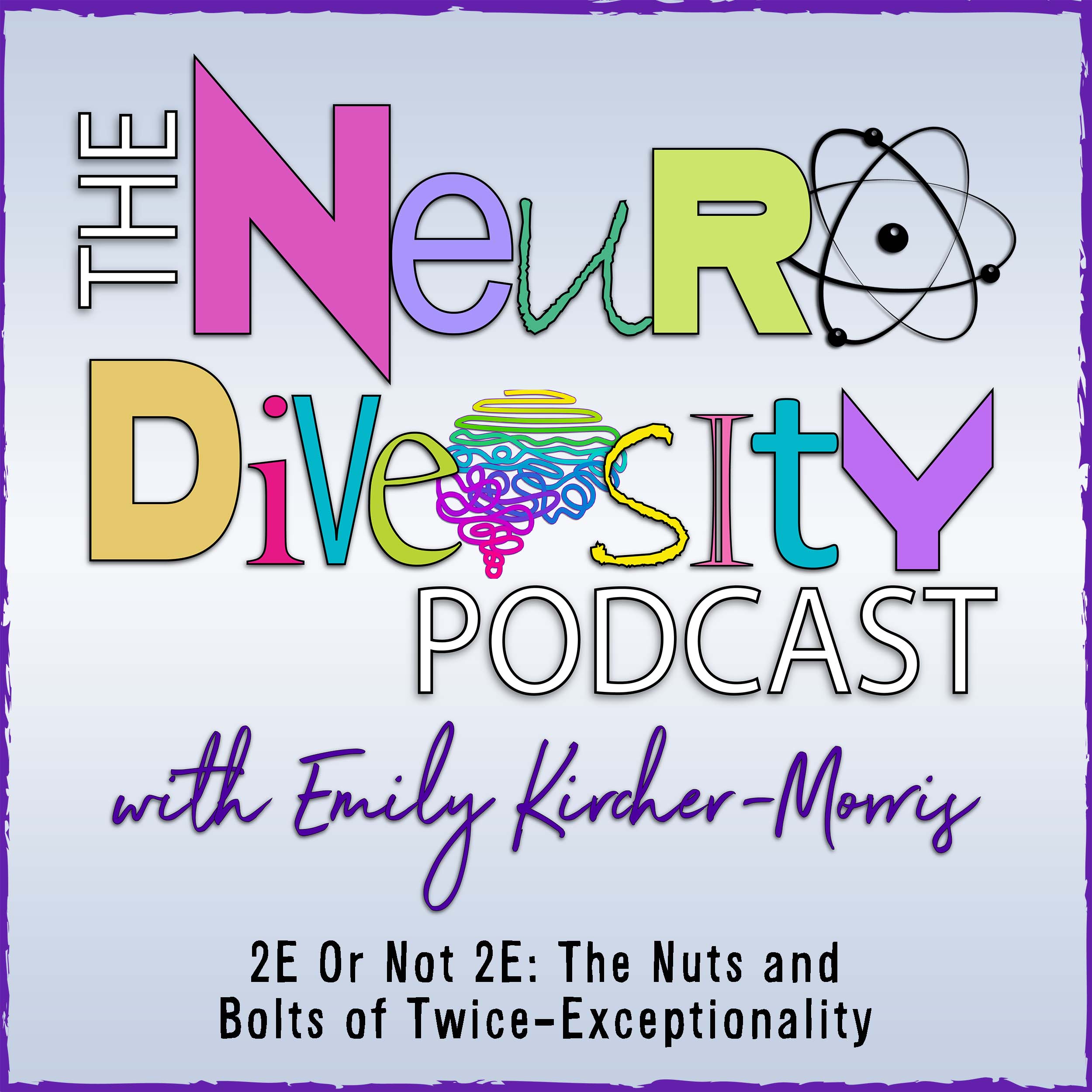

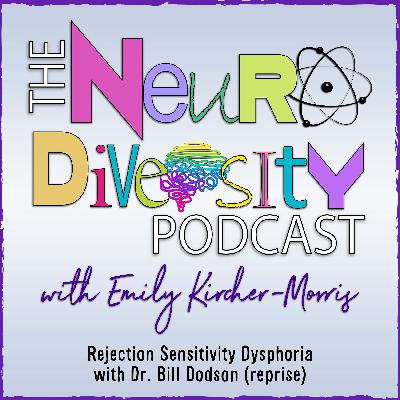
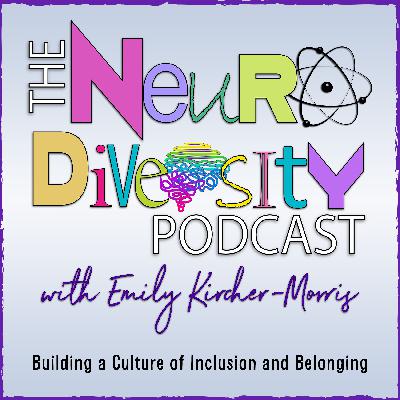
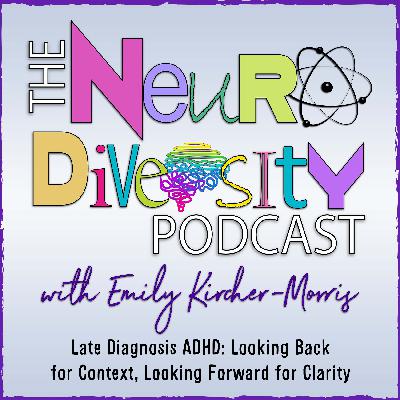
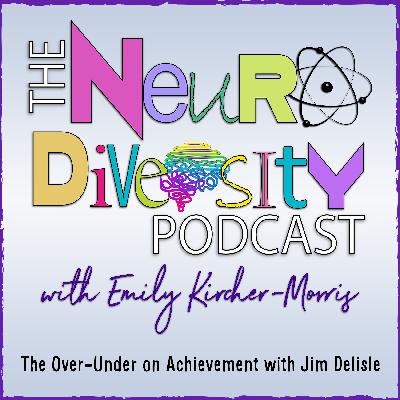
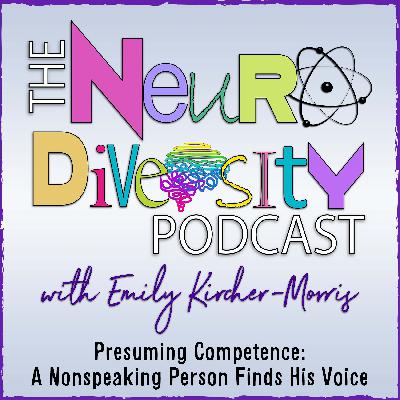
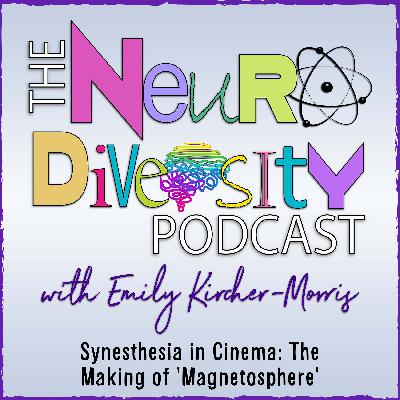


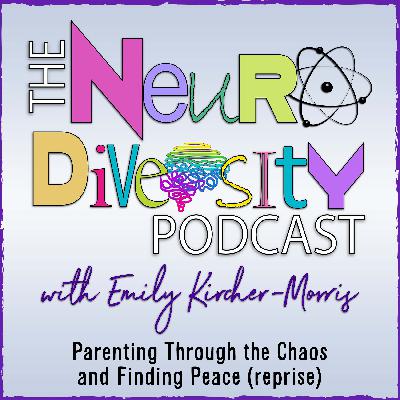
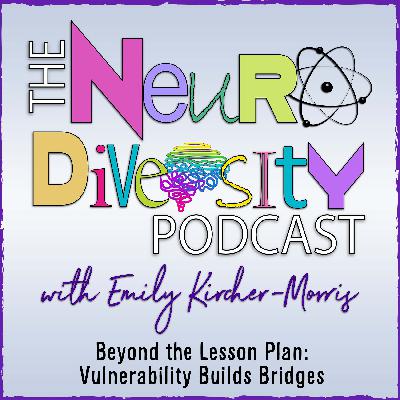
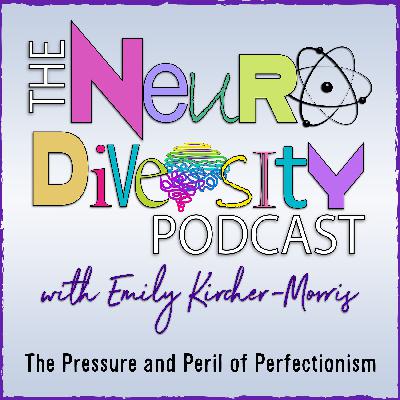
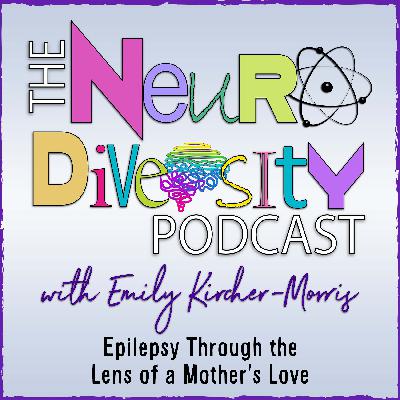
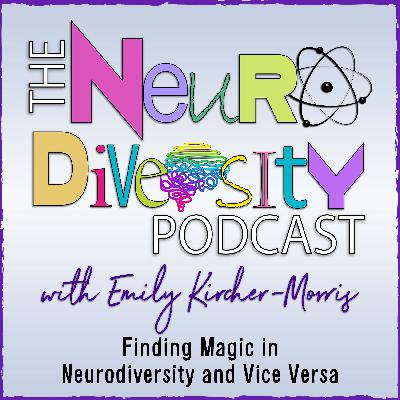
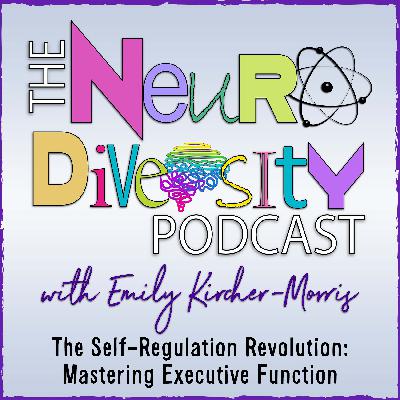
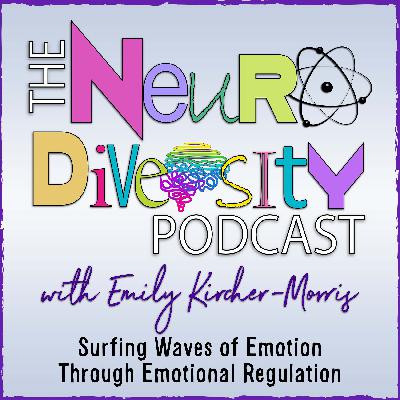
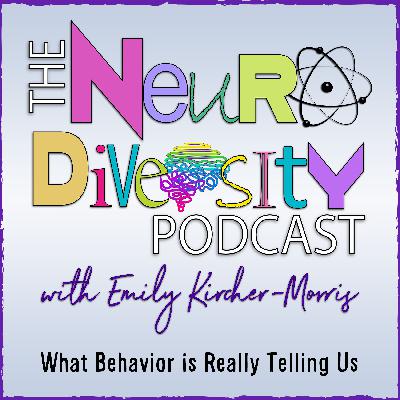
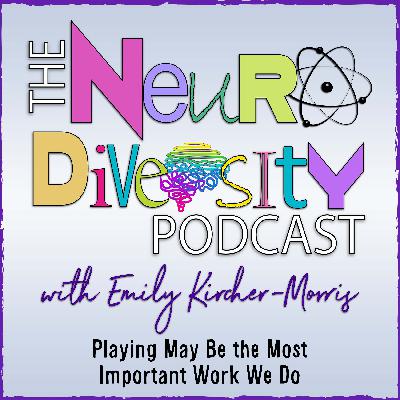
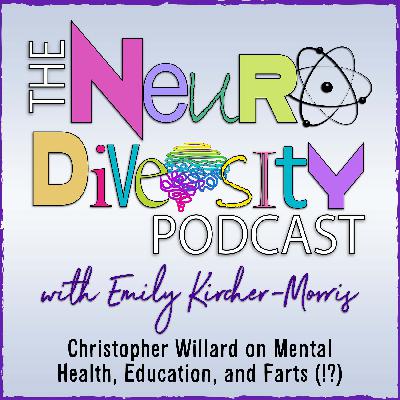



one of the best ADHD (ADD) podcast! #neurodiverse #ADD #SelfHelp
its always about children. what about information about or.for.adults.
Thank you for your insights! I appreciate the comments about Dojo Classroom.
Morning ...as a Mom of a child with Dyslexia and possibly ASD, I've been perplexed at the amount of times within your Podcasts, Neurodivergent people are referred to as 'gifted'. It concerns me that this stereotype is being reinforced within this specialist podcast. Is it a cultural term,I'm not understanding correctly,as I'm not based within the US? thanks